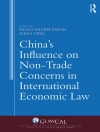What are the local effects of major economic and political reforms in Africa? How have globalized pro-market and pro-democracy reforms impacted local economics and communities? Examining case studies from The Gambia, Ghana, Mozambique, Kenya, Ethiopia, and Somalia, Peter D. Little shows how rural farmers and others respond to complex agendas of governments, development agencies, and non-governmental organizations. The book explores the contradictions between what policy reforms were supposed to do and what actually happened in local communities. Little’s bold vision of development challenges common narratives of African poverty, dependency, and environmental degradation and suggests that sustainable development in Africa can best be achieved by strengthening local livelihoods, markets, and institutions.
Inhaltsverzeichnis
Preface
Introduction: What it means to be ‚Reformed?‘
1. ‚They Think We Can Manufacture Crops:‘ Contract Farming and the Non-Traditional Commodity Business
2. ‚Everybody is a Petty Trader:‘ Peri-Urban Trade in Post-Conflict Maputo, Mozambique
3. ‚We Now Milk Elephants:‘ The Community Conservation Business in Rural Kenya
4. ‚They are Beating Us Over the Head with Democracy:‘ Multi-Party Elections in Rural Kenya
5. ‚The Government is always telling us what to think:‘ Narratives of food aid dependence in rural Ethiopia
6. ‚Counting the poor:‘ The politics of pastoralist poverty assessments in Kenya
7. ‚A sort of free business:‘ Stateless Somalia and a hyper-liberalized economy
Conclusions: Rethinking encounters and reformist narratives
Notes
Bibliography
Index
Über den Autor
Peter D. Little is Professor and Chair of Anthropology and Director of the Program in Development Studies at Emory University.












